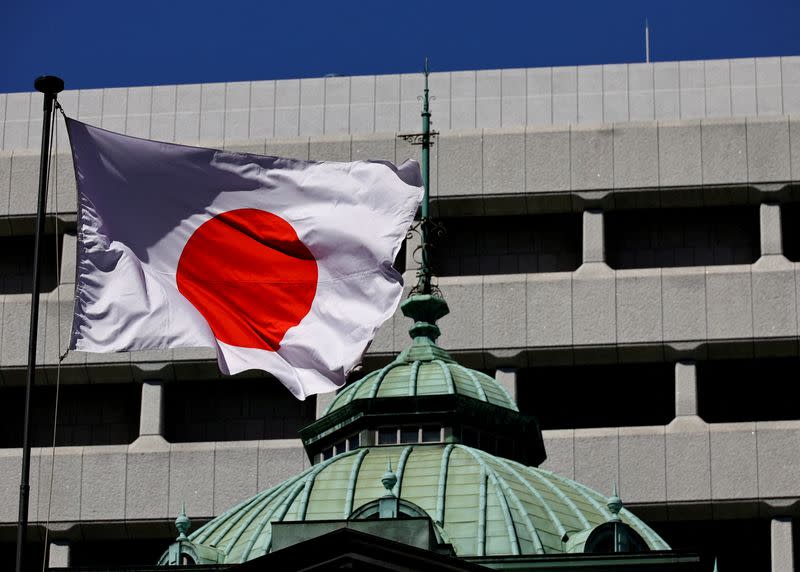The Japanese economy grew by an annualized 3.1% in the second quarter, which was much faster than expected.
A strong rise in consumption helped the economy rebound from a slump at the start of the year, which supports the case for another near-term interest rate hike.
The Bank of Japan had forecast that a solid economic recovery would help inflation sustainably hit its 2% target, and justify raising interest rates further after it hiked them last month in its continued quest to exit years of massive monetary stimulus.
ALSO SEE: Political Upheaval Seen Hitting Thailand’s Sluggish Economy
The increase in gross domestic product (GDP) compared with a median market forecast for a 2.1% gain, and followed an upwardly revised 2.3% contraction in the first quarter, government data showed on Thursday.
The reading translates into a quarterly rise of 0.8%, beating a 0.5% increase expected by economists in the Reuters’ poll.
“The results are simply positive overall, with signs for a pick-up in private consumption backed by real wage growth,” Kazutaka Maeda, an economist at Meiji Yasuda Research Institute, said.
“It supports the BOJ’s view and bodes well for further rate hikes, although the central bank would remain cautious as the last rate increase had caused a sharp spike in the yen.”
Private consumption, which accounts for more than half of the economic output, rose 1.0%, compared with forecast for a 0.5% increase and the first gain in five quarters.
Private consumption has been a soft spot in the economy, which has stuttered over the past year as households struggle with rising living costs, blamed in part on higher import prices due to the weak yen.
Post-Kishida challenge
Public discontent over rising living costs was one of the factors that prompted Japan’s Prime Minister Fumio Kishida to announce that he will resign next month.
Kishida’s replacement could call a snap election in the fall if the approval rating is high, said Kengo Tanahashi, economist at Nomura Securities, adding that the BOJ is unlikely to opt for an additional rate hike during that period.
“We believe that the BOJ will raise interest rates one more time in October or December, but the possibility of a rate hike in October has decreased considerably in light of Prime Minister Kishida’s decision not to run for office,” Tanahashi said.
The government expects the economy will continue to recover gradually as the spring wage talks were strong this year and the minimum income will be raised in October, Economy minister Yoshitaka Shindo said in a statement.
Striking a note of caution, Shindo said Japan must pay close attention to economic-downturn risks overseas and market volatility, as investor concerns grow of a possible US recession that sparked last week’s rout in global financial markets.
The Nikkei share average finished the morning trading up 1.01%, mainly buoyed by Wall Street’s gains overnight, while the Japanese yen was little changed around 147.38 to the dollar after the data.
Tourist influx boosted retail
An influx of tourism has also helped boost retail sales in Japan. Fast Retailing, owner of clothing brand Uniqlo, highlighted strength of the domestic market in its most recent earnings, lifted by a surge in duty-free sales.
Spending by tourists is expected to reach 8 trillion yen ($54.74 billion) this year, according to the government, which sees tourism as an important growth driver in an economy long hobbled by an ageing population.
Capital spending, a key driver of private demand-led growth, rose 0.9% in the second quarter, matching a median market forecast in a Reuters poll. Business investment might come under pressure in the months ahead as exporters face global demand pressure.
External demand, or exports minus imports, knocked 0.1% off growth, the data showed.
The BOJ raised interest rates last month and detailed a plan to taper its huge bond buying in another step toward phasing out its massive monetary stimulus.
Japan is a global outlier in raising rates as most major central banks, including the US Federal Reserve, have begun to ease policy or are moving in that direction.
The first rise in consumption in more than a year “should encourage the Bank of Japan to press ahead with another rate hike later this year,” Marcel Thieliant, head of Asia-Pacific at Capital Economics, said.
- Reuters with additional editing by Jim Pollard
ALSO SEE:
Bank of Japan in Rare Rate Rise, Bond Taper Plan Unveiled
Bank of Japan Seen Hinting at Rate Hikes Next Month
Bank of Japan Ends Negative Rates, as Ueda Normalises Policy
BOJ Views on Inflation, Pay Rises Put Spotlight on Rates Shift
Japan’s Salaries Surge Could See BoJ Turn to Tightening
BOJ Not Afraid of Cost of Phasing Out Stimulus, Ueda Says
























